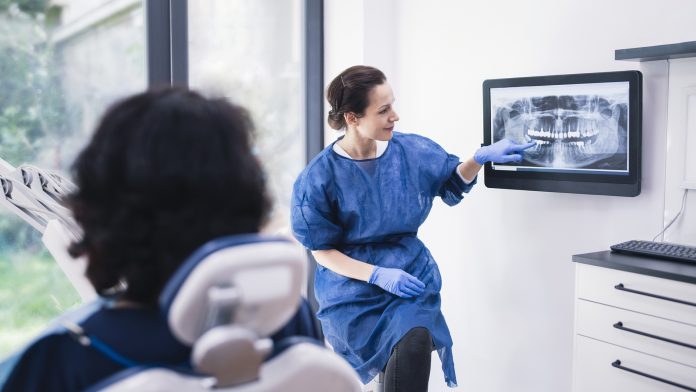
New research has shown that bacteria known to cause oral infections can lead to life-threatening brain abscesses.
A study from researchers at the University of Plymouth investigated the association between brain abscesses and bacteria that occurs in oral cavities. While this type of brain abscess is uncommon, it can result in significant mortality and morbidity.
The research was led by the University of Plymouth and University Hospitals Plymouth NHS Trust. The results of the study have been published in the Journal of Dentistry.
Confirming the cause of brain abscesses is difficult
The researchers examined the records of 87 patients who were admitted to hospital with brain abscesses and used microbiological data obtained from abscess sampling and peripheral cultures.
This enabled the team to investigate the presence of oral bacteria in patients’ brain abscesses. The researchers investigated both abscesses with and without an identified cause. Only 35 patients had the cause of their abscess confirmed.
The results of the investigation showed that the 52 patients, where no cause had been found, were about three times as likely to have oral bacteria present in their samples.
These patients also had a significantly higher rate of Streptococcus anginosus, a bacterium that can cause pharyngitis and bacteraemia. They were also more likely to suffer from infections in internal organs such as the brain, lungs, and liver. This bacterium is often found in dental abscesses.
Infected oral cavities can be a root cause
The findings suggest that the oral cavity should be considered a source of infection in cases of brain abscesses where no obvious cause has been found.
“While many potential causes of brain abscesses are recognised, the origin of infection often remains clinically unidentified. However, it was still surprising to frequently find orally occurring bacteria in brain abscesses of unexplained origin,” said Dr Holly Roy, an NIHR Clinical Lecturer in Neurosurgery based at the University of Plymouth and University Hospitals Plymouth NHS Trust.
“It highlights the importance of using more sensitive techniques to assess the oral cavity as a potential bacterial source in brain abscess patients. It also highlights the importance of improving dental care and oral hygiene more generally,” she added.
This study is part of Plymouth University’s Oral Microbiome Research Group’s ongoing research into the links between the oral microbiome and a range of cardiovascular and neurological conditions. The project is led by Dr Raul Bescos and Dr Zoe Brookes.
Several other clinical trials are currently underway investigating the links between gum health and Alzheimer’s disease. There are also ongoing trials seeking to identify patients under high cardiovascular risk in primary care dental clinics. An altered balance of oral bacteria (microbiome) during gum disease can lead to high blood pressure and strokes, therefore, researchers want to examine this association further.
These clinical trials are being carried out in conjunction with primary care dental facilities run by Peninsula Dental Social Enterprise, where the focus of the research is centred around improving clinical outcomes for patients.






















